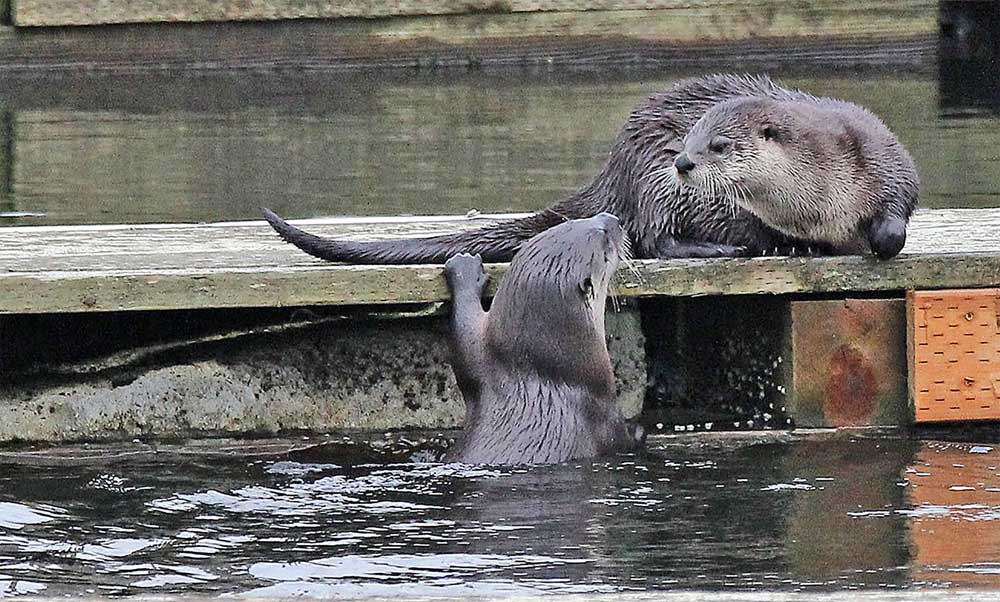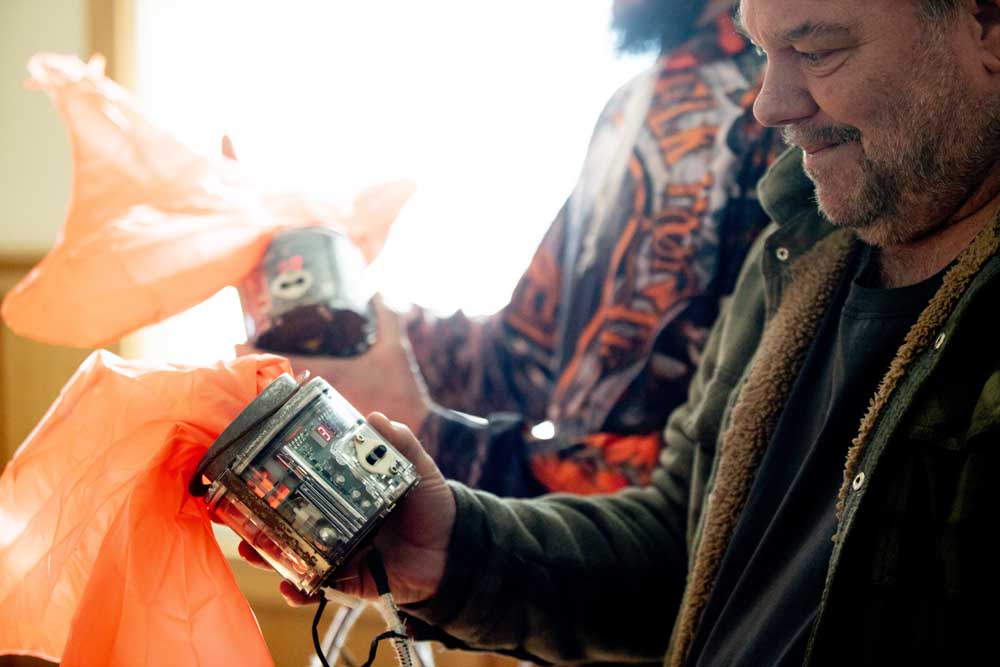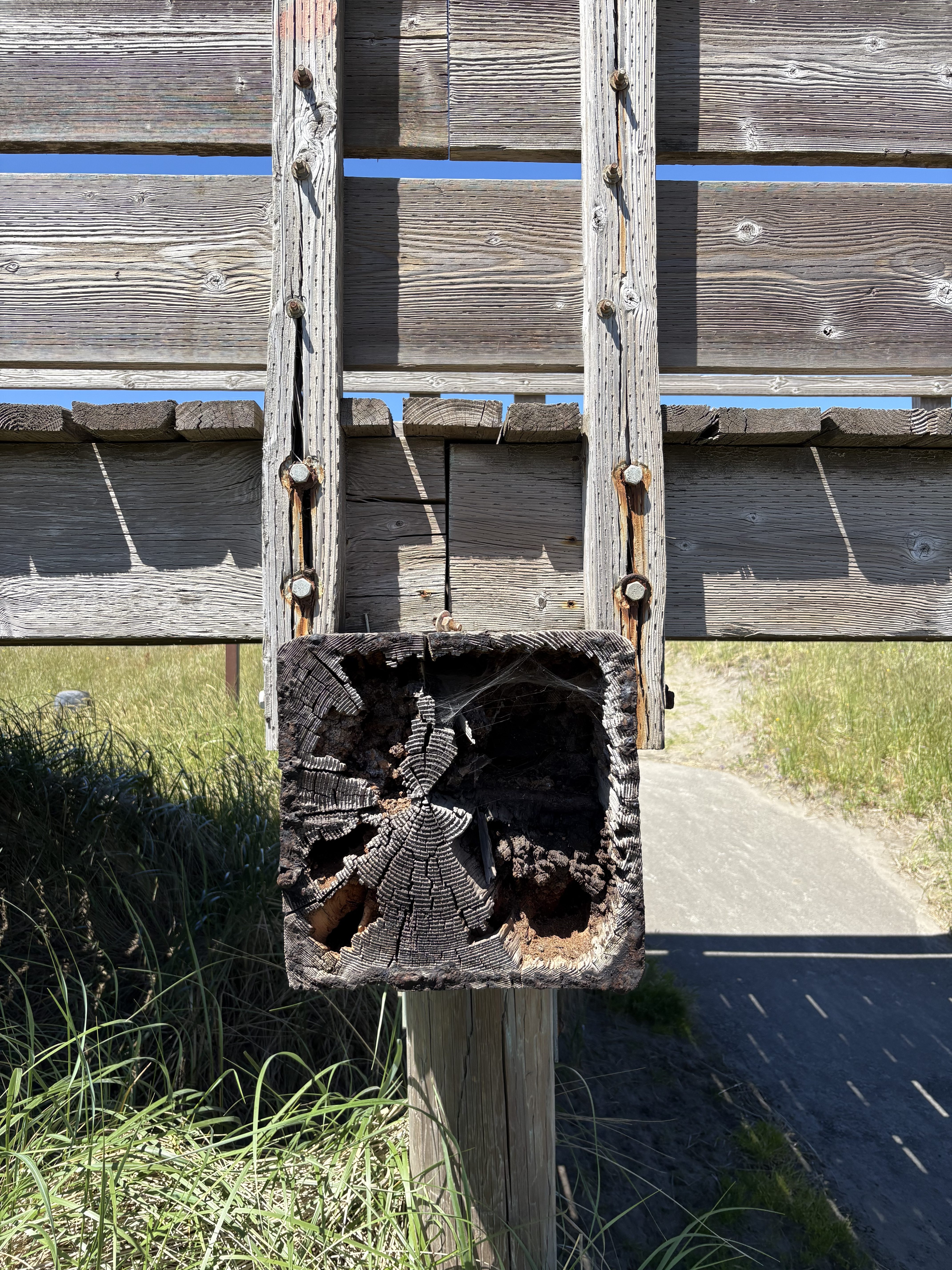Times have changed: But our natural neighbors live on
Published 9:30 am Thursday, December 17, 2020

- The bane of treasured fishing holes, river otters like these at the Port of Chinook are among the most curious and playful of water creatures.
Memories: The crisp smell of late autumn was in the air, and the alder trees were dropping sodden leaves from thin dangling branches. Months before, these same deciduous trees flared from ruby red buds into radiant green leaves. Below the bare trees, a river raced through, twisting and gouging, rising and falling, thirsty in drought times, or drunk on heavy rain or freshet, and the trout were running.
Trending
We call these sleek finned creatures “harvest trout.” Their flesh is a soft pink color like a Renoir nude, and when the trout is sautéed in butter, the subtle taste brings joy to the palette.
I rose early, gathered up a short pliant pole and tackle, a yellow-feathered spinner called a “roster tail,” and headed to the Lime Quarry on Bear River, a precipitous ride down a muddy road that threatened to bottom-out my pickup truck.
Dreaming of ‘Trout Almandine’
I was the first to arrive, and after a midnight downpour, it was evident that I was at the head of the line. There were no trucks, no other tracks in the mud along the riverbed. “Hot damn,“ I said out loud, and began to push upstream, already counting tasty bounty in my head. I imagined coupling the fish with almonds, a dish called “Trout Almandine.” And there would be yellow sauteed potatoes and green beans from the garden. I could hardly throw the lure into my secret spot as my imagination ran wild. After all, not a day had passed recently when I had not caught at least a couple of these silver-tinseled trout.
Nearby, a pileated woodpecker beat out a rat-tat-tat like a war drum, but other than a few bird sounds, my footfall or the occasional swirl of soft moving water, the morning was stillborn.
First light was breaking over the Willapa Hills in golden-yellow rays singing “hallelujah,” and the bay was at slack, still as a sleeping baby. But the trout were not biting. I moved quickly upriver, hole after hole. No luck! Frankly, I was perplexed.
After fishing the fifth of my reliable spots. I was still empty-handed. I turned in disappointment and began to move higher upriver but was suddenly startled by a swooshing and splashing sound that erupted just before me. My eyes swept over the landscape until they landed on a worn patch of earth, a slide of sorts. And suddenly, as if by magic, up popped a tiny furry head.
Otter breakfast
“Good morning friend.” I issued my standard otter salutation. Two soft dark eyes appeared more curious than frightened. This was a young otter. And then his mother popped up, scolding her offspring for not being more cautious.
“Good morning, mother. How’s fishing?“
I knew now what had happened to my troutsies. Just then the sunrays broke across the surface of the still water, into what locals call a tail out. The sleek dense fur of the pair shimmered with luster and a sheen. Beguiling, beseeching and blissful. After raiding the last four fishing holes, I hoped they had eaten their fill. I kept talking. They kept starring. But not for long. Down they went. And up they came, now only a few short feet from this startled fisherman. Cute does not begin to define the doll-like bodies. Four delicate paws reached into the chilly air. They seemed to be washing their cute, enchanting faces.
How fast can a family of otters swim? How fast can the two mammals travel under water? Let me tell you — that night I ate bacon and beans.
“Mind if I fish ahead?” I asked in a pleading voice like a golfer with an impending doctor’s appointment. “I have a reputation to uphold, you know! “ Mother cocked her head. Baby wiggled his whiskers.
I rushed to the next hole, a fine pocket of deep water that I had christened as “Old Faithful.” But like furry-haired rockets, my new friends squirted to the surface.
“Hell’s fire! Still hungry, eh? You know, I spotted a couple of dinner-sized troutsies just three holes back. Downstream!”
How fast can a family of otters swim? How fast can the two mammals travel under water? Let me tell you — that night I ate bacon and beans.
Some things have changed in 45 years. The river still flows. Rain falls, steady and sure, but not quite as hard as in my childhood. But the harvest trout is endangered. Where old logging roads chased beside the pristine rivers, now, steel gates block entrance. Yes, you can pay a fee to hunt the whitetail, but it just doesn’t seem right.
Times have changed
The landscape has changed. Old growth timber has been shorn. Third and fourth growth dominates. There are few of the ancient cedar. Most of them are locked up in parks. Heavy mud and runoff filled many of the streams and threatened the famous salmon runs. Steelhead are far less common. Our world turns but somehow, not quite as dependably as I imagine it in my youth.
But we must remain optimistic. In Bear River, the chum runs were relatively robust this fall. River otters, woodpeckers and even rarely seen creatures like bobcats and cougars are still among our neighbors. Conservancy is no longer an obscure word. Rain and green are popular concepts. Riparian zones are protected. So are salmon and whales. Success hangs on a time allocation.
Let us toast memories of happier times and pray for a bright future. Let us acknowledge a new president with a new vision.
But oh! For a plate of fresh trout with almonds. Oh, to watch the blink of that first breathless light as I hike beside a river that twists and turns and floods my aspirations and dreams with newfound hope and joy. Oh, to be young again and free afoot.









